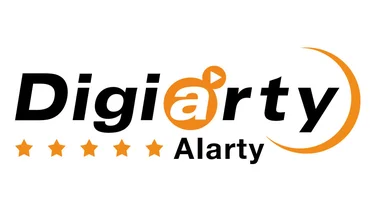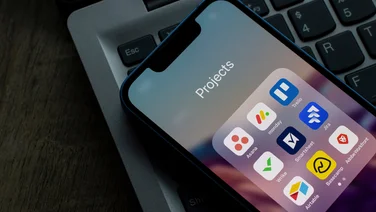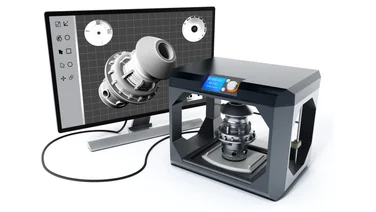To help us provide you with free impartial advice, we may earn a commission if you buy through links on our site. Learn more

Any good piece of Customer Relationship Management (CRM) software will allow sales teams to easily manage their clients – from potential leads to repeat customers – but when it comes to CRM suites, one size doesn’t always fit all which is why we compiled a list of the best small business CRMs.
Small businesses are likely to have very specific requirements. For a start, you’re more likely to have a smaller team with shared responsibilities, and the administration and configuration may be carried out by a regular team member, rather than by a dedicated manager. You’re also more likely to want a streamlined feature set; one that caters to your specific needs and doesn’t leave you to navigate your way through an ocean of irrelevant functionality. But, like any CRM user, first and foremost you’ll need a tool that makes it easy for your team to identify every customer interaction, to track all communications and see where they are along the sales pipeline.
Modern CRMs often have features like Kanban boards to visualise workflow systems and have automation to assign tasks and contact customers. They usually have analytics – enabling you to set targets for sales teams – and data-rich contact management. Dedicated CRM software is, fundamentally, an elegant front-end to a clutch of databases; one that, for many small businesses, can be a significant step up from using shared Excel or Google spreadsheets.
Best small business CRM: At a glance
| Best CRM for small businesses | Monday | |
| Best free CRM for small businesses | Freshsales | |
| Best CRM for growing businesses | Hubspot |
How to choose the right CRM for your small business
Though they were once the preserve of massive international corporations, Customer Relationship Management suites are now accessible to businesses of every size; however, the range of options can be overwhelming.
There are both free and paid-for versions of CRM software and either may work well for a small business. The key points to watch out for include the number of free user seats that are available, as well as the cost of paid seats, and – particularly if you decide to start on a free tier – the cost of upgrading.
READ NEXT: The best VoIP for small businesses
Does CRM have to be costly?
You can pay anything from nothing at all to thousands of pounds per month for a good CRM suite, and such disparately priced options are often available from the same company.Freshsales and Hubspot both have compelling free tiers – ones which could easily meet all the requirements of a small business’ sales team – while Monday’s ultra-slick user interface, simple setup and straightforward administration processes are tailor-made for smaller operations, but you have to pay for the privilege.
Most of the CRM SaaS (Software as a Service) suites that don’t offer a free tier still have an entry-level version for a very competitive fee, though there may be a minimum seat requirement. For example, Monday’s Basic CRM tier costs £8.50 per seat per month – working out to £102 per user annually – but you must subscribe to at least three seats, which bumps your minimum entry-level cost to £306 per year.
What are the key features to look for in a CRM?
At a minimum, the key features that we would expect to see in any CRM are:
- contact management
- a sales pipeline, to track the progress of sales leads
- interaction tracking, so that any team member can see every interaction that’s been had with a lead or customer
Ideally, both table views and drag-and-drop Kanban board views would be included for tracking your pipelines. You would probably also want there to be email integration and other integrations with third-party services; some analytics – particularly lead scoring and forecasting – and workflow automation so that the CRM can automatically trigger responses to specified events.
READ NEXT: The best project management software to use
What should small businesses look for in a CRM?
We’ve already discussed user seat limits and cost, but if you’re going to be using the lower tiers of a CRM service then you’ll want to know the answers to a few other queries before you click the subscribe button. Namely:
- Is there a limit to the number of contacts you can have?
- Is there an integrated product catalogue? And can it be tailored to your products or services as needed?
- Do you only get one sales pipeline? Or more?
- Can all of your users be given equal access to the platform at the standard seat price?
- Are there extensions that allow you to connect the other software tools or services that your business uses? Accounting software, for example.
The more you’re willing to pay, the more will be included, but for the lower tiers, these features may be sorely lacking.
How we test CRM suites
When testing CRMs, we load them with dummy data – including contacts, leads and sales pipelines – and then we try to link them to a variety of email providers and other communication tools. We add users to our sales team, track interactions with leads and customers, and try out some of each of the CRM suites’ automations. We try out first- and third-party extensions, and we refer to any available analytics to see what data is captured and how it is depicted. We also check how well the interface is presented on various screen sizes.
We run through the setup and data import process for each CRM suite, checking how they handle different data formats and how much assistance they provide first-time users. We also consider how approachable any given CRM might be for a company transitioning to a fully-fledged sales suite for the first time – for example, what assumptions does the CRM make, and how much jargon would the user need to understand?
READ NEXT: The best broadbands for businesses
The best CRMs for small businesses in 2024
1. Monday Sales CRM: Best CRM for small businesses
Price when reviewed: Starts at £306/yr | Sign up at Monday

Monday is a stand-out modern CRM. Its automations (the processes that trigger in response to specific events) and its integrations (the extensions to add features or connect to other services) are both useful and easy to use. If some of its apps are limited, then that’s only in comparison to full stand-alone products. For many sales-oriented businesses, especially those that need to prioritise specific tasks, Monday is fantastic.
Monday’s interface is fresh and spacious, it uses colour effectively, and it displays well on a wide range of monitor and window sizes. Both the interface and its documentation are relatively jargon free too, making it a solid choice for businesses that are moving to a CRM for the first time.
Where Monday falls short is its email integration, which only works if your email provider is Google Workspace or Microsoft 365. There’s also no formal support for shared team mailboxes, though there are workarounds that can be found.
Monday doesn’t have a free tier – although it does offer a 14-day free trial – and its subscriptions require a minimum of three seats, making it one of the more expensive options if you’re running a microbusiness, but, as soon as you have more than a couple of sales staff, Monday should be at the top of your list of services to try.
Read our full Monday Sales CRM review
Key features – Free tier? No; Minimum paid seats: 3; Email integration: Google and Microsoft 365 only
2. Freshsales: Best free CRM for small businesses

Price when reviewed: Free (up to 2 users) | Sign up at FreshworksFreshsales is designed with smaller businesses in mind but there’s plenty of scope for it to grow with your sales team if you want to move off its free tier. We also like how it uses clear, plain English instead of sales jargon and includes good explanations of its features. The free tier gets you three user seats and has basic contact, account and deal management tools with its own Kanban views, as well as integrated chat and email, and even some telephony integration options.
Freshsales is very focused on online sales and marketing. Its social media sales and marketing modules are very simple to use, especially if you communicate with customers via Facebook, Instagram or WhatsApp. However, it strongly prefers your contacts to have an email address, making it less suitable for primarily offline businesses.
Key features – Free tier seats: 2; Email limitations: 500 emails per day; Free sales pipelines: 1
3. Hubspot: Best CRM for growing businesses
Price when reviewed: Free (up to 2 users) | Sign up at Hubspot

Hubspot has one of our favourite free tiers, but you can ultimately upgrade your Hubspot CRM to handle the sales lead and team management requirements of a multinational corporation, leaving your business plenty of room to grow.
The free Hubspot CRM is still incredibly generous and has two user seats and all of Hubspot CRM’s most important features, including limited but efficient versions of the marketing, sales, service, operations and even CMS tools that will enable you to easily create a website to sell your products or services directly.
Since you get more than just a CRM, Hubspot is almost at risk of providing you with more than you need as a small business – after all, this is a version of a vast, enterprise-oriented sales toolkit. Fortunately, a clear user interface and sensible feature restrictions work in its favour. It’s also easy to get started with, thanks to simple language and a guided onboarding process. Free users get a single sales pipeline, with one shared inbox and Hubspot branding on emails. It enables you to send up to 2,000 marketing emails per month, and there’s a product library that’s limited to 100 products. But you can have up to a million contacts and, for more advanced users, up to 250,000 API calls per day, so it’s perfectly feasible to integrate Hubspot with your own tools and web services.
Read our full HubSpot review
Key features – Free tier seats: 2; Email limitations: 2,000 marketing emails per month, Hubspot branding; Free sales pipelines: 1





